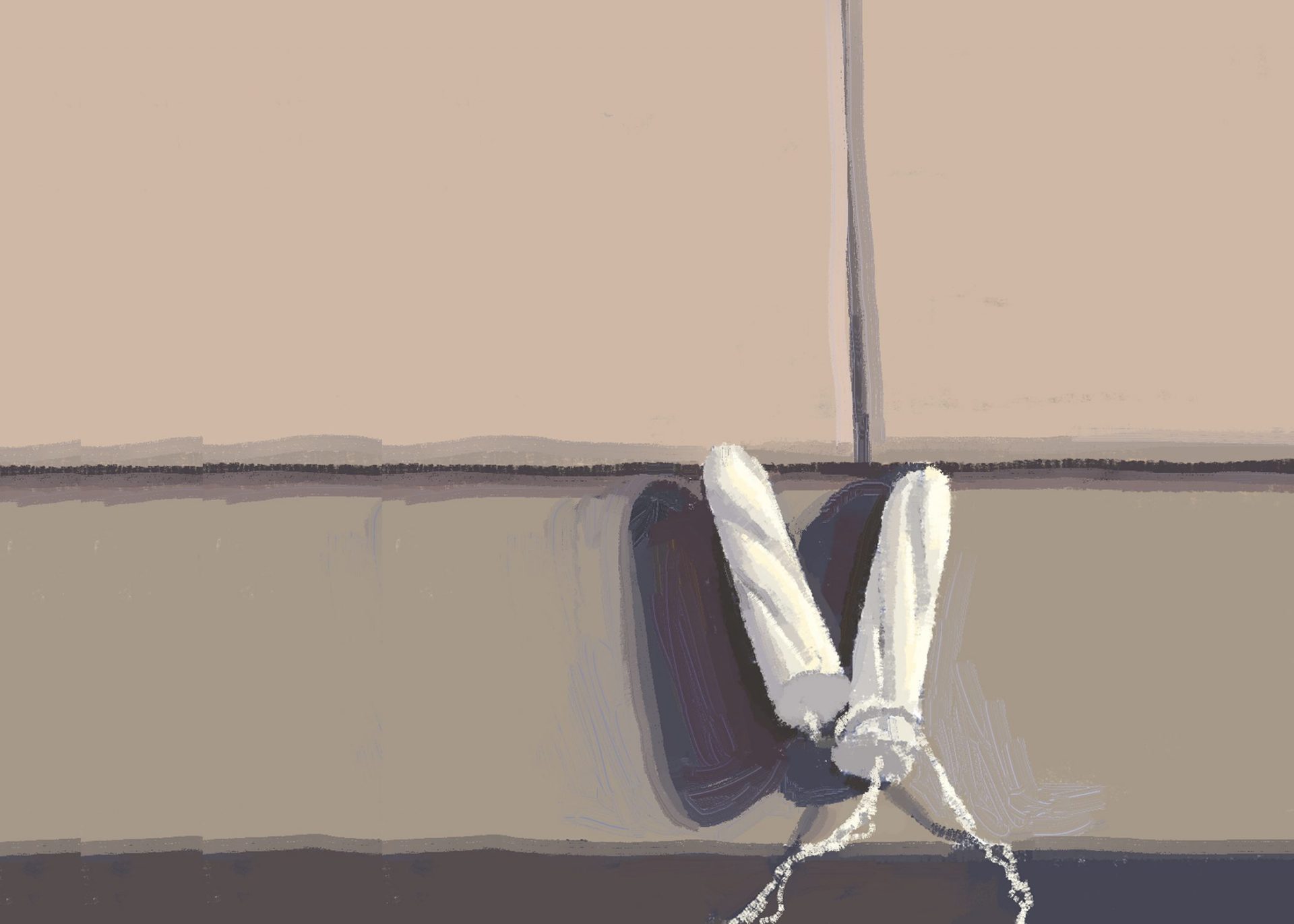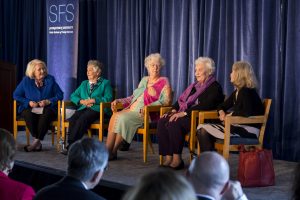Editor’s Note: This piece is published as part of The Homeless Crisis Reporting Project (HCRP), launched by Street Sense Media in 2016. HCRP is a multi-day collaborative effort between local D.C. outlets to spotlight homelessness and related issues in the District. Check out all the 2024 HCRP stories here.
Last year, Leslie Boyd lost her steady job of three years. When her company downsized, it eliminated her department, and soon after, she lost her housing.
“I never thought I’d be experiencing [homelessness],” she said.
Suddenly, Boyd had to learn how to sleep outside, where to find public restrooms, and ways to maintain her appearance. Something she didn’t anticipate? Not knowing what to do when her period came.
“I had to go into a public bathroom, take a whole bunch of tissue, and use those,” Boyd said. “I ended up having to double up on pants, just in case blood got on one of them.”
Boyd is not alone. For people experiencing homelessness across D.C., period products can be inaccessible and costly. The National Organization for Women found that the average woman spends around $20 on menstrual products per cycle, meaning these products can be cost-prohibitive for those experiencing homelessness.
Roughly one-third of people who experience homelessness in D.C. are women, meaning there are approximately 1,600 individuals who may be menstruating while homeless in D.C. However, not all women menstruate, and not all who menstruate are women—and given the higher rates at which transgender and gender nonconforming individuals experience homelessness, 1,600 is likely a low estimate.
Across the country, period poverty, or the lack of access to period products, affects 16.9 million individuals, and disproportionately impacts Black and Hispanic people.
In 2022, the D.C. City Council unanimously passed a bill requiring period products to be available in all of D.C.’s public restrooms, including libraries, shelters, and recreation centers. However, Boyd said that it’s often difficult to find a public restroom, and they’re not always stocked. Turning to local shelters also proved difficult.
“I’ve been to two shelters,” Boyd said. “When you go down and ask for a pad they say, ‘We don’t carry those.’ And so I said, ‘What do you mean you don’t carry them? This is a women’s shelter—I’m confused.’”
Boyd was finally able to access pads and tampons at Bethany Women’s Center, a day center for women experiencing homelessness in northwest D.C.
Lisa Cobb, the program associate at the center, explained that visitors are often desperate for period products because the little money they do have is spent on other necessities.
“When you’re unhoused, you’re just trying to meet your basic needs, which is food and shelter and washing your clothes,” Cobb said.
In her time at Bethany Women’s Center, Cobb has seen many ask for thick pads and diapers that would allow them to use fewer products.
“Sometimes the women tell me they want the diapers because they live in the shelter, and they don’t want to climb down off their bunk and go to the bathroom,” she said. “I just think that every woman needs to have access to things that will help them to feel safe and to feel cared for, and give them the ability to care for themselves.”
Beyond feelings of embarrassment or shame, there are also serious health risks associated with a lack of access to menstrual hygiene products. The World Bank found that period poverty is tied to higher risk of urinary tract infections, Hepatitis B, and thrush. If a tampon is left in more than eight hours, there is a serious risk of toxic shock syndrome, which can be fatal.
Menstrual products also aren’t as easily accessible to people who menstruate but don’t identify as women. The Voice called three different men’s shelters in D.C. to inquire about access to period products, and was redirected by all three to seek help at a women’s shelter. This disparity can lead trans and gender nonconforming people into uncomfortable or even dangerous situations just to have their basic needs met.
Across D.C., community groups are rallying around menstrual access. Hurunnessa Fariad is the director of outreach at the Multi-Faith Neighbors Network (MFNN), which brings together coalitions of faith leaders for social justice work. Recently, MFNN partnered with the Washington Hebrew Congregation (WHC) to provide Bethany Women’s Center with 500 reusable menstrual cups—small, oval-shaped cups that are inserted into the vagina to collect period blood.
Menstrual cups, Fariad says, are much safer and more cost-effective for people experiencing homelessness.
“They’re reusable, they’re affordable, they’re non-toxic, they don’t impact the environment,” she explained. “If you give a woman a pad, you can use it for one day, that’s it. But a menstrual cup she can use for 10 years, and it’s only $10.”
Last month, MFNN and the WHC distributed the cups in person at Bethany Women’s Center.
“Thirty women got to pick up and listen and learn. I got the CEO of the organization that I work with who makes the cups, she got two of her nurses to come on Zoom and teach them how to use it,” she said. “They asked such great questions that we would never think of, because we’re not in that situation.”
For instance, Boyd shared that while she had looked into using menstrual cups, she didn’t know if she would have regular bathroom access to clean one—menstrual cups have to be cleaned every 4-8 hours depending on flow. The specific storage requirements for these cups can also be inaccessible to people experiencing homelessness. According to Fariad, others brought up concerns about accessing boiling water for sanitization, leading her and her partners to brainstorm solutions.
Fariad is implementing this program nationwide, with support from groups of women from religious institutions in 20 different cities. For her, the project is part of putting her faith into action.
“It’s putting yourself in the shoes of someone else that might not have access to the privilege that you have. So when you do have that privilege, we need to make sure that we’re giving back,” Fariad said.
With so many people experiencing homelessness currently dealing with period poverty, Boyd wants the D.C. community to make menstrual products more accessible. She also encouraged other women experiencing homelessness to make sure they prioritize their physical hygiene, practice self-care, and find places like Bethany Women’s Center, which can help support them.
“I’ve never experienced a place as dedicated to women as they are,” she said. “I know it’s difficult on the streets—it is—but there’s ways around it .”






